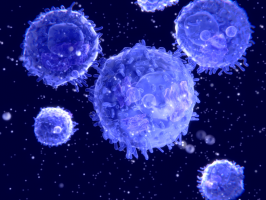
A new study has found a surprising link between high levels of methylmalonic acid and the weakening of CD8+ T cells, shedding light on potential pathways through which ageing may promote lung cancer progression.
Moffitt Cancer Centre researchers have found new insights into how metabolic changes associated with ageing can impact immune responses against tumours.
Their study, published in Oncogene, explores how increased methylmalonic acid impairs the activation and effector functions of CD8+ T cells, immune cells that play a vital role in fighting cancer.
Methylmalonic acid levels are normally low in healthy individuals.
Elevated levels have been linked to ageing and vitamin B12 deficiency, raising questions about their role in cancer biology.
“Our research shows that methylmalonic acid not only increases with age but also makes CD8+ T cells weaker by disrupting their energy production,” said Ana Gomes, Ph.D., lead author on the study and principal investigator in the Molecular Oncology Department at Moffitt.
“This makes it harder for the immune system to fight cancer, suggesting that targeting methylmalonic acid could help improve cancer treatment.”
Researchers found that methylmalonic acid treatment significantly reduced the activity of CD8+ T cells, an important component of the immune response to tumours.
The study’s results indicate that methylmalonic acid influences global gene expression in these cells, leading to the downregulation of key pathways involved in immune activation and metabolism.
The study also highlights the role of methylmalonic acid in skewing the tumour microenvironment, affecting not only T cells but also other immune cells, potentially contributing to a more favourable environment for tumour growth and metastasis.
These findings suggest that strategies aimed at reducing methylmalonic acid levels or counteracting its effects on CD8+ T cells could enhance antitumor immunity, particularly in older patients who are at greater risk for lung cancer.
We are an independent charity and are not backed by a large company or society. We raise every penny ourselves to improve the standards of cancer care through education. You can help us continue our work to address inequalities in cancer care by making a donation.
Any donation, however small, contributes directly towards the costs of creating and sharing free oncology education.
Together we can get better outcomes for patients by tackling global inequalities in access to the results of cancer research.
Thank you for your support.